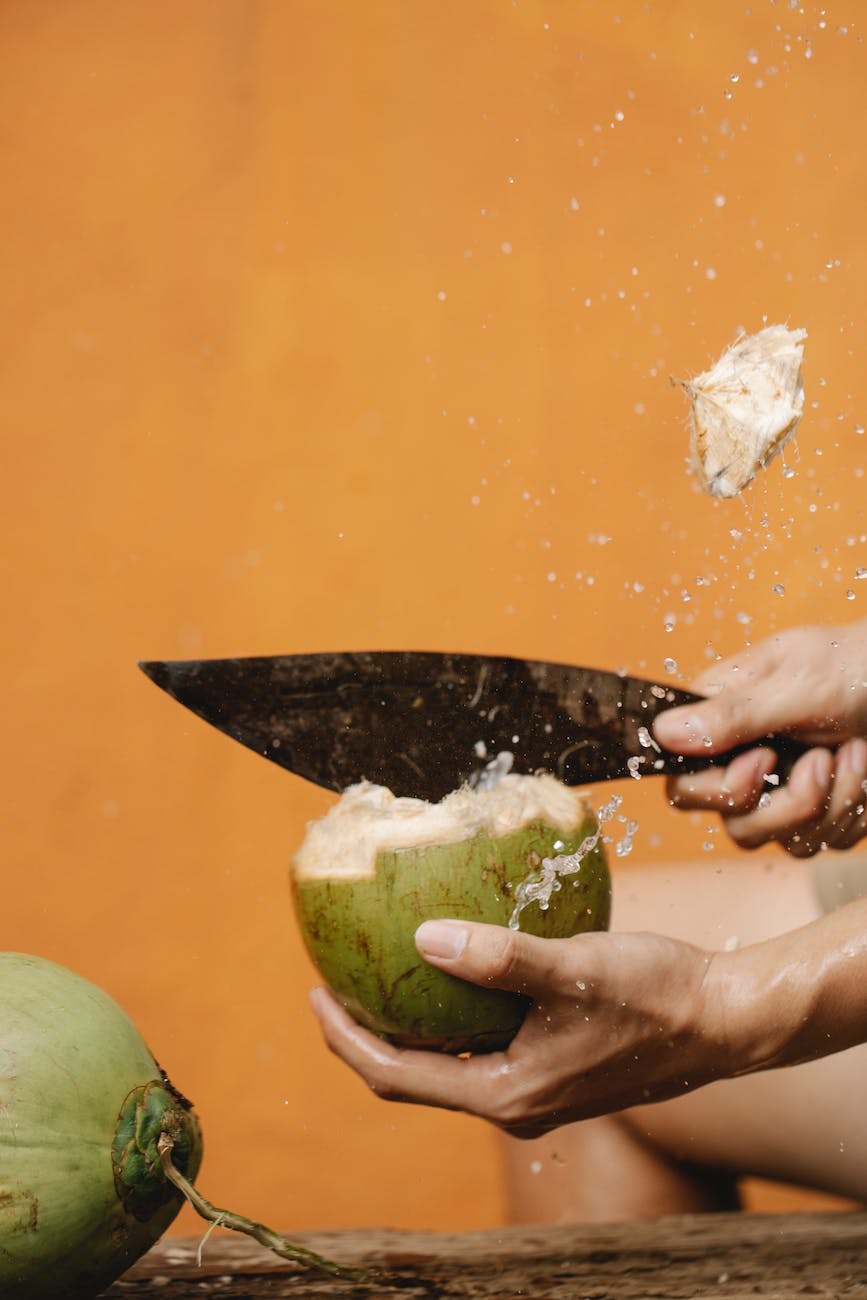
Coconut water, known as Nariyal Pani in some cultures, has gained popularity as a refreshing and nutritious beverage. It is the clear liquid found inside young, green coconuts and is often hailed for its hydrating properties. In this post, we’ll delve into the world of coconut water, exploring its composition, health benefits, and caloric impact. Get ready to quench your thirst and discover the wonders of Nariyal Pani! 🥥🌴💦🌊
🌴 The Natural Elixir of Coconuts: Coconut water is nature’s gift, brimming with nutrients and electrolytes. It is extracted from the center of green coconuts before they mature into the hard, brown ones we’re familiar with. The water is naturally low in calories, fat-free, and cholesterol-free. While the taste may vary slightly depending on the coconut’s maturity, the general consensus is that it offers a subtly sweet and refreshing flavor, making it a popular choice for hydration.
💦 Hydration and Electrolyte Balance: One of the primary reasons coconut water is celebrated is its exceptional hydrating properties. It is composed of about 94% water, making it an excellent way to replenish fluids and maintain hydration. Additionally, it is a rich source of electrolytes, including potassium, sodium, magnesium, calcium, and phosphorus. These essential minerals play a crucial role in maintaining fluid balance, supporting proper muscle function, and replenishing electrolyte stores after exercise or physical exertion.
🥥 Vitamins, Minerals, and Antioxidants: Coconut water contains various vitamins and minerals that contribute to overall health. It is a good source of vitamin C, which supports immune function and acts as an antioxidant, protecting the body against cellular damage caused by harmful free radicals. Additionally, it contains small amounts of B-complex vitamins, such as riboflavin, niacin, pantothenic acid, vitamin B6, and folate, which are essential for energy production and overall well-being.
🌊 The Caloric Impact of Coconut Water: When it comes to calories, coconut water is relatively low compared to other beverages. However, it’s essential to consider portion sizes and individual nutritional needs. On average, one cup (240 ml) of coconut water contains approximately 45-60 calories, with variations depending on factors such as the coconut’s maturity and the brand of coconut water. While it does contain calories, it is still considered a low-calorie option compared to sugary drinks or fruit juices.
Coconut water is naturally sweet, and the sweetness may increase as the coconut matures. However, it is important to note that the sugar content in coconut water is naturally occurring and different from added sugars found in processed beverages. Additionally, the presence of fiber and electrolytes in coconut water helps regulate the absorption and impact of sugars on blood sugar levels.
🥥🌴 Incorporating Coconut Water into Your Diet: Coconut water can be enjoyed on its own as a refreshing beverage, or it can be used as an ingredient in various recipes and smoothies. Here are a few ideas for incorporating coconut water into your diet:
1️⃣ Hydrating Post-Workout Beverage: After an intense workout or physical activity, replenish your body’s electrolytes with a cold glass of coconut water. It provides natural hydration and essential minerals to support your recovery.
2️⃣ Smoothie Base: Swap regular water or other liquids with coconut water when making smoothies. It adds a subtle sweetness and extra nutrients to your favorite blends. You can combine it with fruits, leafy greens, and even add a scoop of protein powder for a nutritious and delicious post-workout smoothie.
3️⃣ Mocktails and Cocktails: Create refreshing mocktails or cocktails by using coconut water as a base. Mix it with fruit juices, herbs, or even a splash of your preferred spirit for a tropical twist. You can experiment with different flavor combinations and garnish with fresh fruits or herbs for a visually appealing drink.
4️⃣ Cooking and Baking: Coconut water can be used in various culinary preparations. It can be added to soups, curries, rice dishes, and even desserts for a unique flavor profile. Use it as a substitute for water when cooking grains or as a liquid component in baking recipes to infuse a hint of coconut flavor.
🌴💦🥥 Enjoy the Bounty of Coconut Water: Coconut water provides a delicious and hydrating way to replenish electrolytes, enjoy essential nutrients, and quench your thirst. With its low caloric impact, abundance of vitamins and minerals, and delightful taste, it’s no wonder coconut water has become a popular choice for many. So, the next time you’re in need of hydration, reach for a bottle of coconut water and indulge in the natural elixir of coconuts!








